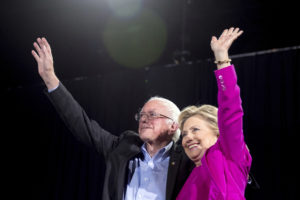E.J. Dionne Jr.: No More NASCAR Fakers
It's shocking how quickly the "real America," as described by political pollsters, morphed from Bush/Cheney country to Stewart/Colbert country.WASHINGTON — When a nation alters its philosophical direction and changes its assumptions, there is no press release to announce the shift, no news conference where The People declare they have decided to move down a different path.
Yet 2006 is looking more and more like one of history’s hinge years, a moment when old ideas are cast aside, new leaders emerge and old leaders decide to speak in new ways. The changes in politics and culture are visible in the many sudden and outright reversals of the conventional wisdom.
Nowhere is the evidence of change more striking than among the young, whose attitudes and behavior are usually leading indicators of social transformation.
In 1984, three exit polls pegged Ronald Reagan’s share of the ballots cast by Americans under 30 at between 57 percent and 60 percent. Reagan-style conservatism seemed fresh, optimistic and innovative. In 2006, voters under 30 gave 60 percent of their votes to Democratic House candidates, according to the shared media exit poll. Conservatism now looks old, tired and ineffectual.
When the right seemed headed to dominance in the early 1990s, the hot political media trend was talk radio and the star was Rush Limbaugh, a smart entrepreneur who spawned imitators around the country and all across the AM dial.
Now, the chic medium is televised political comedy and the cool commentators are Jon Stewart and Stephen Colbert. Their brilliant ridicule of the Bush administration and conservative bloviators satisfies a political craving at least as great as the one Limbaugh once fed. Stewart and Colbert speak especially to young Americans who rely on their sensible take on the madness that surrounds us. The young helped drive their popularity, and the Droll Duo, in turn, shaped a new, anti-conservative skepticism.
It wasn’t all that long ago that Democrats and liberals were said to be out of touch with “the real America,” which was defined as encompassing the states that voted for President Bush in 2004, including the entire South. Democrats seemed to accept this definition of reality and they struggled — often looking ridiculous in the process — to become fluent in NASCAR talk and to discuss religion with the inflections of a white southern evangelicalism foreign to so many of them.
Now, the conventional wisdom sees Republicans becoming merely a Southern regional party. Isn’t it amazing how quickly the supposedly “real America” was transformed into a besieged conservative enclave out of touch with the rest of the country? Now, religious moderates and liberals are speaking in their own tongues, and the free-thinking, down-to-earth citizens of the Rocky Mountain states are, in large numbers, fed up with right-wing ideology.
Only a few months ago, it was widely thought (and not just by Republican consultants) that accusing opponents of wanting to “cut and run” in Iraq would be enough to cast political enemies into an unpatriotic netherworld of wimps and “defeatocrats.”
Now, the burden of proof is on those who claim that fighting in Iraq was a good idea and that the situation can be turned around. The call for a “surge” of additional troops is greeted with skepticism because Americans have been told too often that this or that new approach would transform the situation in “three to six months.”
The Iraq Study Group’s grim description of what’s going on is the accepted definition of reality. Polls show majorities embracing the report not, I suspect, because most Americans are conversant with its every detail. Rather, they see its take as closer to the truth than the president’s accounts over the last three years, and because it appears to point toward disengagement.
Since the 1970s, supply-side conservatives have been brilliantly successful in redefining economic thinking. They shifted the popular focus from workers to entrepreneurs, from incomes to wealth, from job creation to share-price increases, and from government policy innovation to private-sector autonomy.
Suddenly, economic inequality is a problem even conservatives are taking seriously. Corporate America is looked upon, let us say, in less heroic terms. Economic security is no longer a dirty phrase and staunch capitalists aren’t quite so eager to preach the virtues of “creative destruction” to displaced industrial workers. Government — with some wariness, to be sure — is being invited back into the economic story to redress grievances and to right imbalances.
How durable are these changes? In both politics and culture, the side that thinks it’s losing usually accommodates itself to the ascendant order. My hunch is that we will be seeing many new claims to moderation and social concern on the right, and many fewer fake NASCAR fans on the left.
E.J. Dionne Jr.’s e-mail address is [email protected].
© 2006, Washington Post Writers Group
Your support matters…Independent journalism is under threat and overshadowed by heavily funded mainstream media.
You can help level the playing field. Become a member.
Your tax-deductible contribution keeps us digging beneath the headlines to give you thought-provoking, investigative reporting and analysis that unearths what's really happening- without compromise.
Give today to support our courageous, independent journalists.

You need to be a supporter to comment.
There are currently no responses to this article.
Be the first to respond.